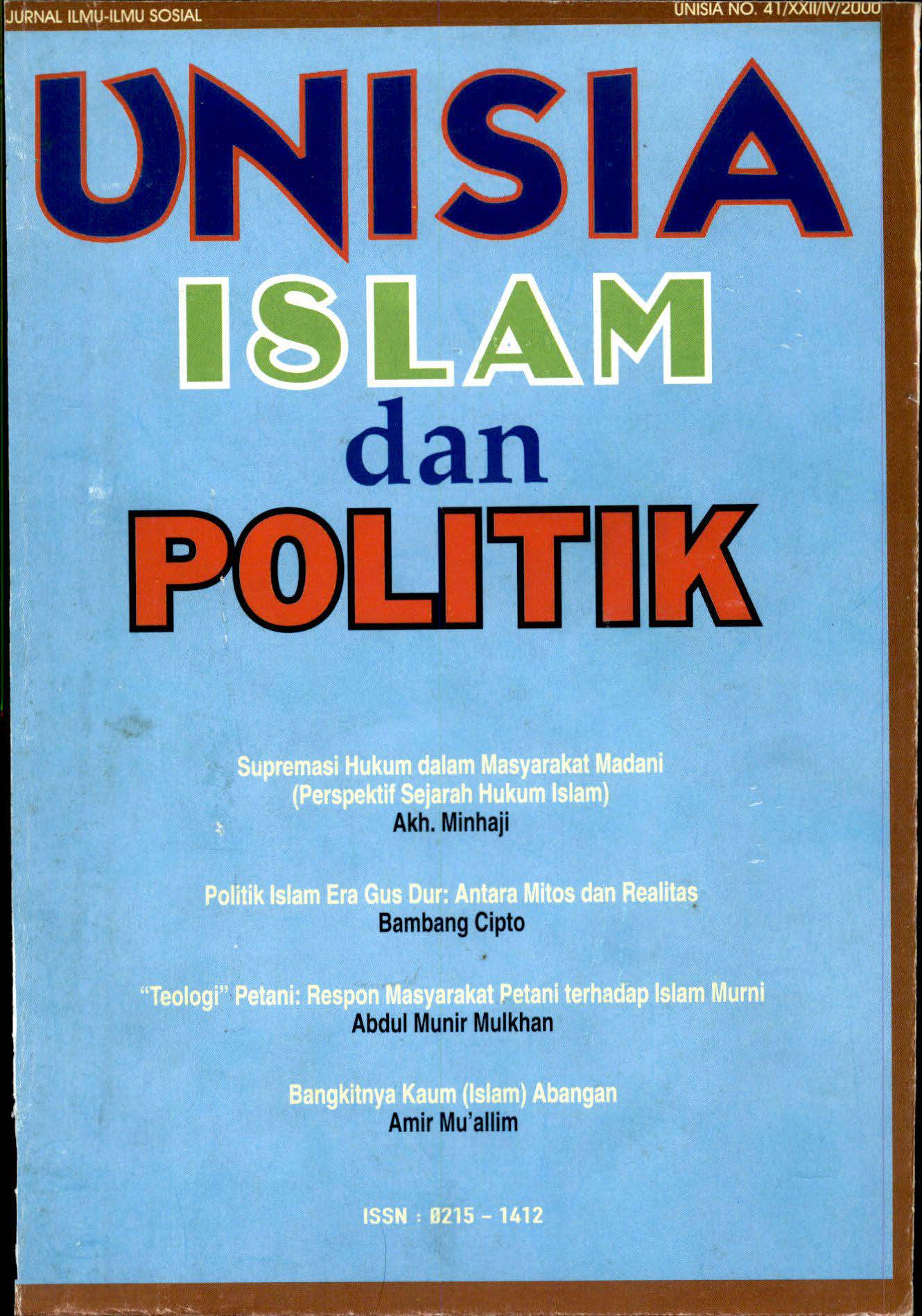Main Article Content
Abstract
The dynamic development of Islam, especially in the country side farm-are, describes the interaction between the pure Islam—symbolizedby Muhammadiyah —and the farmer tradition. The tradition offarmer religiosity is oftenly connected with superstition, bid'ah and kurafaat. This book is based on the writer's research that shows the sociological description on the aculturation the meeting of both traditions and on the role of village leaders in East-Java. The most important finding is this research is thattheincreasing number of Muhammadiyah followers in the farming - areas is notmainly because of the success oftradition purifying but it is merely supported by some certain social situations.
Article Details
License
- Authors retain copyright and grant the journal right of first publication with the work simultaneously licensed under a Creative Commons Attribution License that allows others to share the work with an acknowledgement of the work's authorship and initial publication in this journal.
- Authors are able to enter into separate, additional contractual arrangements for the non-exclusive distribution of the journal's published version of the work (e.g., post it to an institutional repository or publish it in a book), with an acknowledgement of its initial publication in this journal.
- Authors are permitted and encouraged to post their work online (e.g., in institutional repositories or on their website) prior to and during the submission process, as it can lead to productive exchanges, as well as earlier and greater citation of published work.
How to Cite
Mulkhan, A. M. (2016). "Teologi" Petani: Respon Masyarakat Petani terhadap Islam Murni. Unisia, (41), 254–282. https://doi.org/10.20885/unisia.v0i41.5718




